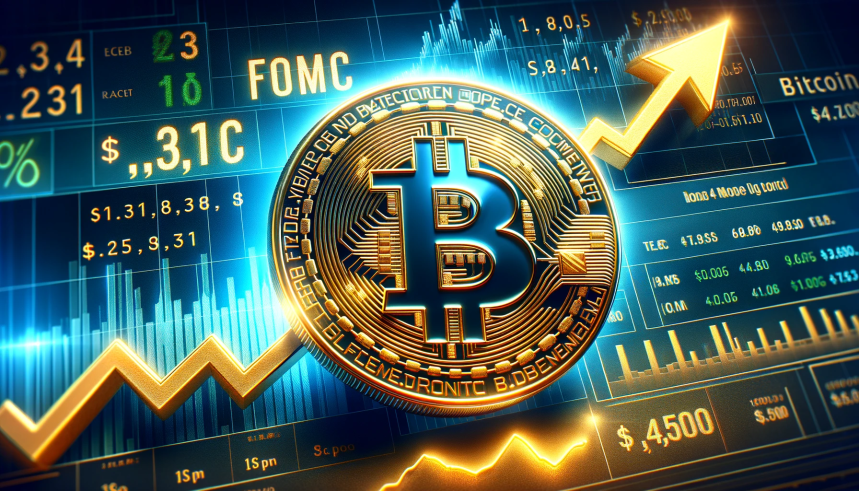After a challenging two weeks resulting in a 21% drop, the Bitcoin (BTC) price rebounded emphatically, closing last week on a strong note. The premier cryptocurrency witnessed a surge that saw it end with a Doji Hammer candle on its weekly chart, signaling a potential bullish reversal. Notably, this uptick has propelled Bitcoin’s value back into its previous range of $41,300 to $45,000.
Keith Alan, the co-founder of Material Indicators, highlighted the significance of this pattern, stating, “Looks like we have a Doji Hammer candle forming on the BTC Weekly chart. That typically indicates a bullish reversal is coming. […] If we do indeed print a Hammer, Bitcoin bulls will need to overcome resistance at the bottom range of the Golden Pocket to have a chance at a meaningful move to retest the $44k – $45k range.”
Bitcoin has also reclaimed its position above the 20- and 50-day Exponential Moving Averages (EMAs), hinting at the potential for further gains. However, the anticipation surrounding the first Federal Open Market Committee (FOMC) meeting of 2024 adds a layer of complexity to Bitcoin’s trajectory.
FOMC Preview
The upcoming Federal Open Market Committee (FOMC) meeting, is anticipated to be a major determinant in the short-term movement of Bitcoin’s price, as it could signal significant shifts in the United States Federal Reserve’s monetary policy approach.
Macro analyst @tedtalksmacro provided an in-depth perspective: “This week’s FOMC meeting is pivotal.” Currently, the market is expecting the Fed to maintain the status quo, with a 97% probability against any policy change.
“However, there’s a 46% chance of a rate cut by the March meeting. Investors should closely monitor for signs of the Fed moving towards a data-dependent approach, any recognition of inflation nearing their 2% target, and potential adjustments to Quantitative Tightening (QT) policies,” Ted remarked.
After this week, the Committee will meet again on March 19-20. Thus, this week’s FOMC meeting could lay the foundation for the critical decisions in March, which could have immediate and pronounced effects on market dynamics.
The Federal Reserve has forecasted that it will reduce interest rates three times this year. The market anticipates a possibility of five or more cuts. There is a general agreement that the initial reduction in rates might occur in the second quarter, though there is substantial support for the possibility of it happening at the March meeting.
Goldman Sachs has been consistently predicting a rate cut by the Fed in March. Their analysis is grounded in the significant progress observed in inflation control.
The post-FOMC meeting press conference will be a focal point, as investors seek clarity on the collective view of the FOMC members, including the newly rotated regional Fed bank presidents. These officials, known for their cautious approach towards rate cuts, will play a significant role in shaping the committee’s decision-making process.
December’s inflation report indicated a 3.4% year-on-year increase, with core prices rising more rapidly than many economists had projected. However, the Department of Commerce’s personal consumption expenditures (PCE) index, the Fed’s preferred inflation measure, showed more promising signs of inflation cooling down to 2.9%, aligning closer to the Fed’s target.
Implications For The Bitcoin Price
Renowned crypto analyst @ColdBloodShill drew attention to the historical inverse correlation between the DXY (Dollar Index) and Bitcoin. He shared the following chart and stated: “Heard you needed some hopium. The last two FOMC events have marked the pico top of the DXY. Next one on Wednesday.”
A potential drop in the DXY following the FOMC meeting could act as a catalyst for Bitcoin to rise towards the $45,000 mark. In addition, there are possible changes in QT policy that could indicate an increase in the supply of money. Such developments could serve as a major catalyst for the Bitcoin price as the hardest asset of the world.
